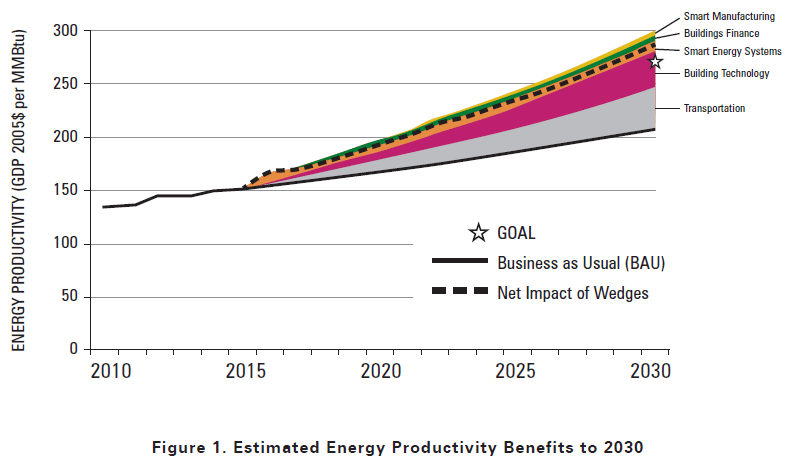For many years, Waupaca Foundry has recognized the importance of managing our energy use, not only to remain competitive, but also to reduce our impact on the environment, strengthen our local and state economies and support the nation's goal of energy independence. In 2010, Waupaca Foundry accepted the U.S. Department of Energy's "Better Buildings Challenge" to reduce energy intensity by 25% by 2020. Through the end of 2015, Waupaca Foundry has achieved a 16.3% reduction.
Accelerate Energy Productivity
Michael Hoecker | Waupaca Foundry
Unlike the Better Buildings Challenge, which focused primarily on private sector industrial and commercial firms, Accelerate Energy Productivity 2030 calls to arms all energy consumers, including federal, state and local governments, industrial and commercial businesses, utilities, higher education institutions, households and individuals. Also, where previous efforts targeted, for the most part, energy conservation and manufacturing technology improvements, the 2030 challenge additionally targets research and development, government policy, a more informed and knowledgeable work force, and a modernized and more efficient utility and grid infrastructure (electric, gas and water).
In addition, where participation has now shifted solely from industrial and commercial entities to the entire national landscape, so also has the eye of opportunity for energy reduction efforts. Beyond manufacturing, the program now also draws attention to building technologies, transportation and infrastructure inefficiencies, among others.
Waupaca Foundry is excited about, and strongly advocates for, the continued effort to increase the economic strength and environmental stewardship of the country. We invite you to support the "Accelerate Energy Productivity 2030" initiative with us.
For additional information, Energy 2030 Roadmap.
Sidebar: What is Energy Productivity?

Energy productivity asks the question "how much energy do we use to manufacture goods and provide services?" The nation's output (goods and services) is also known as the Gross Domestic Product, or GDP.
GDP is often measured in dollars of value created. In 2010 (which is the baseline year for the "Accelerate Energy Productivity" program), for every unit of energy consumed, the nation created $134 in GDP. By 2030, through increasing GDP and reduced energy use, the program targets a goal of $268 of value for every unit of energy we use as a nation.

